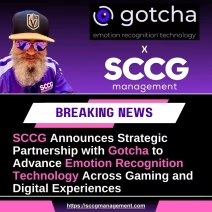Association of Gaming Equipment Manufacturers (AGEM) Hails Passage of Assembly Bill 221 That Expands Nevada’s Gaming Technology Workforce
The Association of Gaming Equipment Manufacturers (AGEM) announced the passage by the Nevada Legislature of Assembly Bill 221 that expands the state’s technology and manufacturing workforce by giving those 18 to 20 years legal status as a “gaming employee” working for slot machine, systems, table game and component suppliers.
Previously, Nevada statute prohibited any person under 21 from being employed as a “gaming employee” except as a member of a casino count room staff. The passage of AB221 retains the count room exception for casino operations, and otherwise applies only to the technology supplier sector, which previously couldn’t even offer internships to those under 21.
Nevada serves as the manufacturing epicenter for global gaming equipment, both hardware and software, exported to every regulated gaming market in the world. Further, AGEM members are responsible for manufacturing every gaming machine in Nevada, and leading providers include International Game Technology (IGT), Scientific Games, Aristocrat Technologies, Konami Gaming, Everi, Ainsworth Game Technology, AGS and others (full list of AGEM members below).
“We are keenly interested in workforce development and employment opportunities within the state and Assembly Bill 221 will take us all in a positive direction,” said Marcus Prater, Executive Director of AGEM. “The gaming suppliers are further interested in hiring those in the 18-20 age group in a variety of company department categories, as well as being able to offer internships to college students. The opportunities could run the gamut from visionary young adult game designers to graduates from our state’s technical schools to math wizards who are all seeking a unique career path previously unavailable to them.”
Expected to be signed by Gov. Steve Sisolak, AB221 was originally introduced by Assembly Judiciary Chairman Steve Yeager and garnered the formal support of the Nevada System of Higher Education, the College of Southern Nevada, the Washoe County School District, Clark County School District and the Las Vegas Metro Chamber of Commerce.
The gaming technology sector continues to grow, according to an in-depth economic impact analysis by the respected Nevada firm Applied Analysis that was released this month, revealing that supplier companies either headquartered in Nevada or have some operations here account for $11.7 billion in direct revenue annually and directly employ nearly 29,000 people across all of their operations. A significant portion of supplier employees are highly educated engineers, software designers, creative development specialists, hardware and sub-assembly experts, game designers, graphic artists, animators, and marketing and financial staff. The average annual salary among AGEM-member companies is $91,240, well above the national average equivalent of $51,960 for the private sector. When considering the “ripple effect” of the industry, those with operations in Nevada are responsible for approximately $31.5 billion in total global economic activity annually.
AGEM is a non-profit international trade association representing manufacturers and suppliers of electronic gaming devices, lotteries, systems, table games, online technology, sports betting, key components and support products and services for the gaming industry. AGEM works to further the interests of gaming equipment suppliers throughout the world. Through political action, regulatory influence, trade show partnerships, educational alliances, information dissemination and good corporate citizenship, the members of AGEM work together to create benefits for every company within the organization. Together, AGEM has assisted regulatory agencies and participated in the legislative process to solve problems and create a business environment where AGEM members can prosper while providing a strong level of support to education and responsible gaming initiatives. For more information, visit www.AGEM.org.





